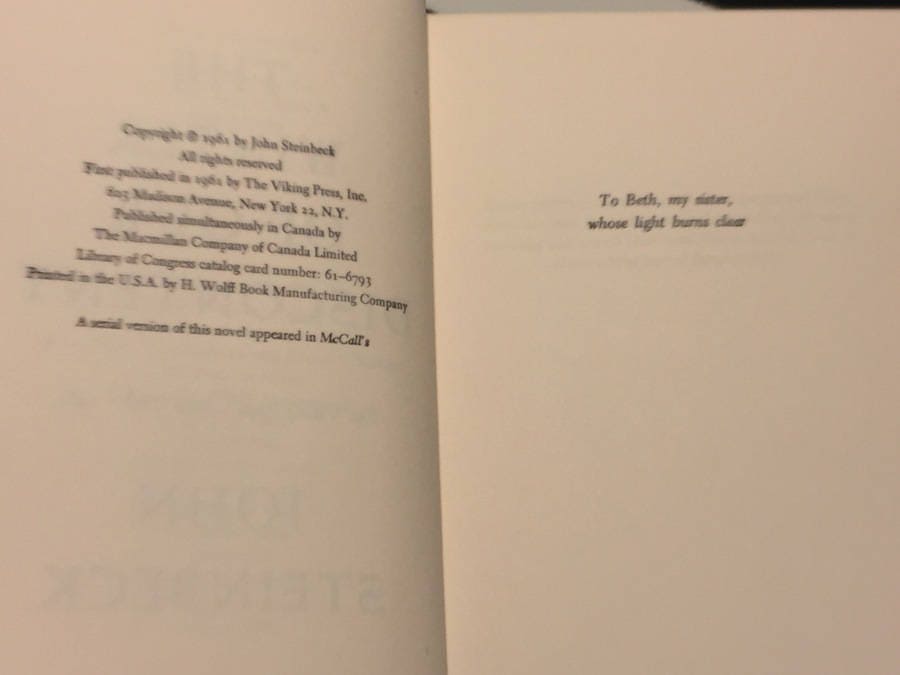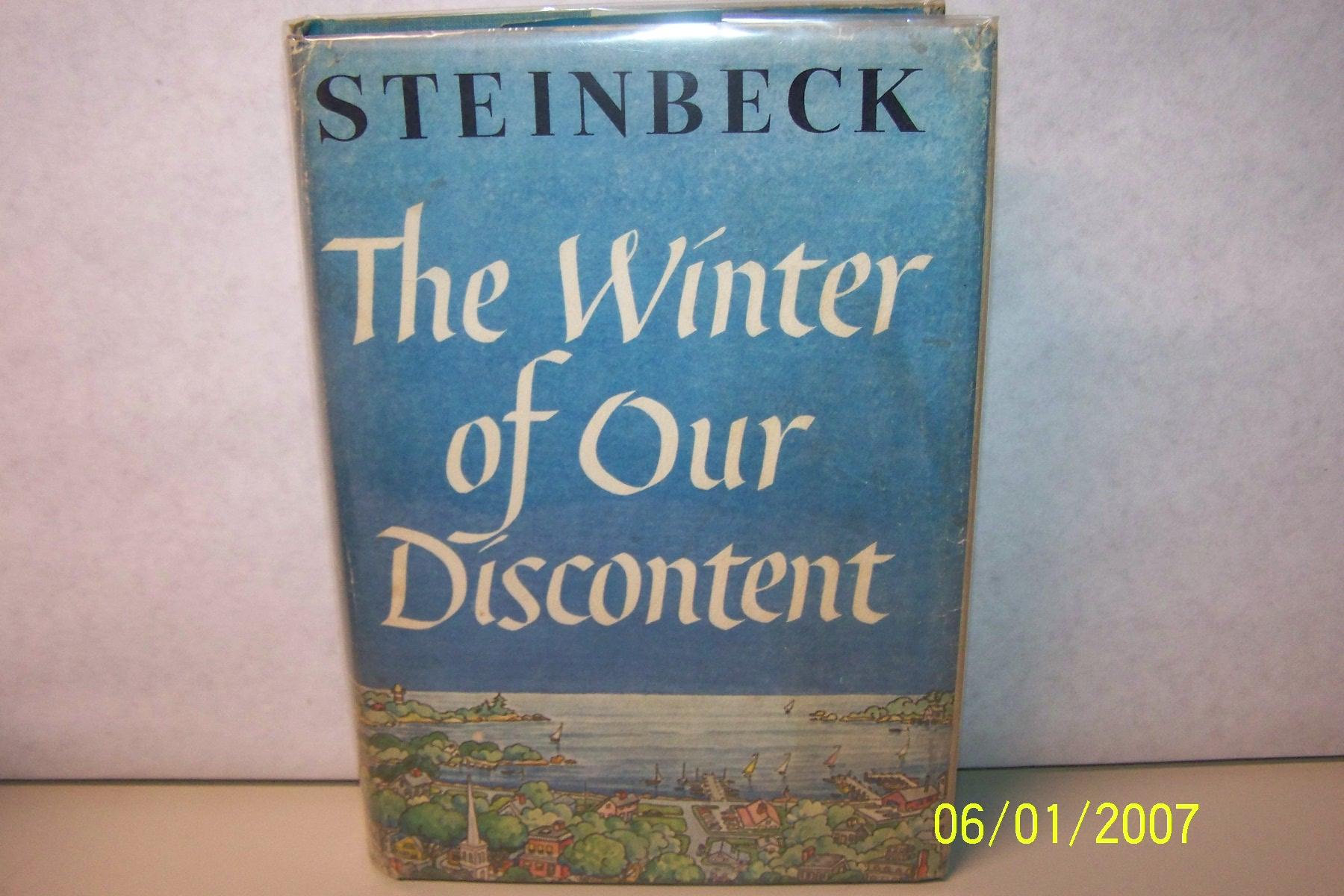
In other words, the only way we can learn that stealing is wrong is to steal, get caught and be punished.

Only rarely can one be “taught” that something is wrong and that such teaching will be sufficient to keep us on the moral high ground. That is, we learn right and wrong by choosing wrong and then by seeing that it does not get us what we expected. Some students felt that experience is the best teacher in life. Some students drew connections with teachings from their parents and churches about the importance of doing good and being good, even when others around us are not. However, students differ in the lessons they learned from the book. Students generally agree that the things Ethan did were wrong and that Steinbeck did a good job in showing that happiness in life does not come from doing bad things to get ahead or merely from the acquisition of wealth.

The class discussions of this book are always interesting. That’s a scary way to justify one’s behavior. “What are morals? … Is there a check in men, deep in them, that stops or punishes? There doesn’t seem to be,” says Ethan.

Steinbeck takes us into the mind of Ethan as he rationalizes what he does. I like the book because it is one of the best novels showing the dilemma people face when tempted to do bad things and the heartache people inevitably feel because of their actions.

By the end of the book Ethan has engaged in a number of morally corrupt activities in order to obtain wealth and status. At the beginning of the book Ethan is content and has a reputation for integrity. The story, which takes place in the early 1960s in a fictional East Coast town called New Baytown, is about the moral decline of a man named Ethan. OL23190W Page_number_confidence 93.29 Pages 330 Ppi 300 References Goldstone A38b Republisher_date 20200215104725 Republisher_operator Republisher_time 428 Scandate 20200214195748 Scanner Scanningcenter cebu Scribe3_search_catalog marygrove Scribe3_search_id 31927000692720 Tts_version 3.For the past several years I have required students in my applied ethics course to read John Steinbeck’s book, The Winter of Our Discontent. Access-restricted-item true Addeddate 05:03:43 Associated-names Hader, Elmer, 1889-1973, bookjacket designer Boxid IA1776623 Camera USB PTP Class Camera Col_number COL-609 Collection_set printdisabled External-identifier


 0 kommentar(er)
0 kommentar(er)
